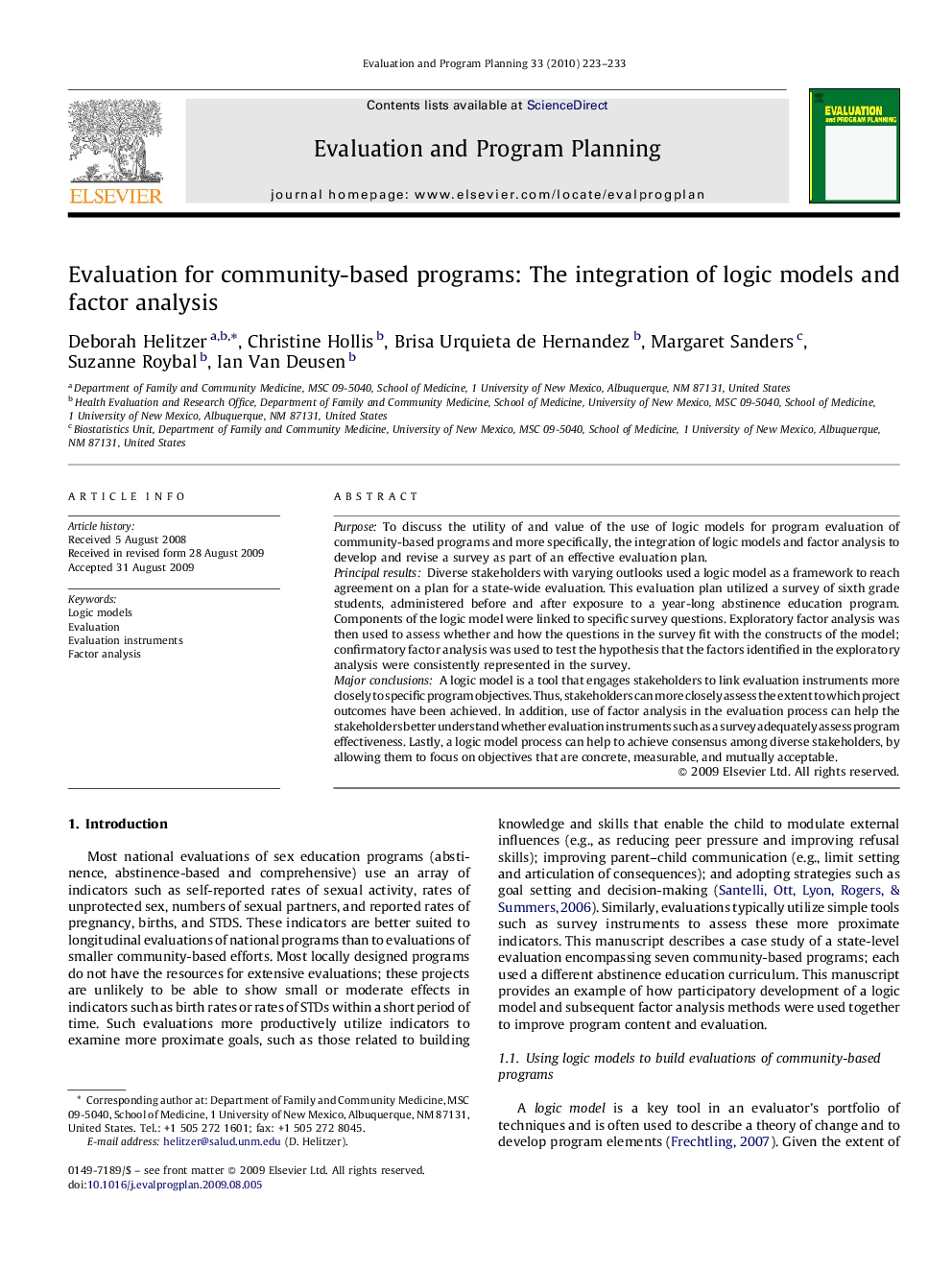| Article ID | Journal | Published Year | Pages | File Type |
|---|---|---|---|---|
| 322597 | Evaluation and Program Planning | 2010 | 11 Pages |
PurposeTo discuss the utility of and value of the use of logic models for program evaluation of community-based programs and more specifically, the integration of logic models and factor analysis to develop and revise a survey as part of an effective evaluation plan.Principal resultsDiverse stakeholders with varying outlooks used a logic model as a framework to reach agreement on a plan for a state-wide evaluation. This evaluation plan utilized a survey of sixth grade students, administered before and after exposure to a year-long abstinence education program. Components of the logic model were linked to specific survey questions. Exploratory factor analysis was then used to assess whether and how the questions in the survey fit with the constructs of the model; confirmatory factor analysis was used to test the hypothesis that the factors identified in the exploratory analysis were consistently represented in the survey.Major conclusionsA logic model is a tool that engages stakeholders to link evaluation instruments more closely to specific program objectives. Thus, stakeholders can more closely assess the extent to which project outcomes have been achieved. In addition, use of factor analysis in the evaluation process can help the stakeholders better understand whether evaluation instruments such as a survey adequately assess program effectiveness. Lastly, a logic model process can help to achieve consensus among diverse stakeholders, by allowing them to focus on objectives that are concrete, measurable, and mutually acceptable.
